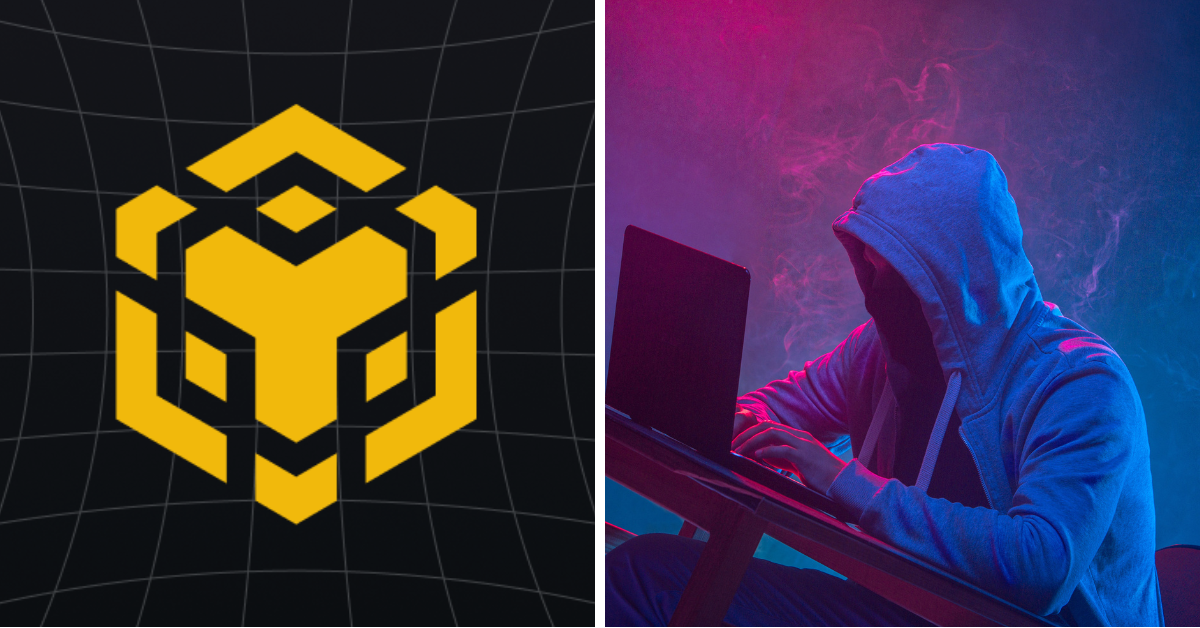"White gloves in the dollar", Libra will meet with the central bank's digital currency
Author: Zhao Xuejiao
Source: Zinc Link (ID: xinlianjie-)
The contest between Libra and DCEP (Central Bank Digital Currency) has begun.
On the one hand, the Libra team is working hard to speed up the development process. On the other hand, the People's Bank of China Digital Currency (DCEP) is also conducting closed-loop testing and is beginning to recruit.
- Quote analysis: the battle against the digital frontier, the Fed is also ready to play coins
- Telegram delays TON launch, investors can recover "about 77%" funds
- Analysis: Why is Asia-Pacific only China's nearly 100% bitcoin transactions using USDT?
On October 3, Libra released its first project roadmap, the main network will start, and it is expected that 100 partners will run the entire node.
A week later (October 11th), the Central Bank Digital Money Research Institute released the 2020 talent recruitment information and began recruiting technology research and development and financial technology talents.
To what extent will Libra compete with DCEP? How can DCEP take on the responsibility of realizing the internationalization of the RMB?
Recently, the Zinc Link interviewed the founder of the MOAC public chain and Jingtong Technology, "Deeping the Earth", to talk about the future development and competition of Libra and DCEP in the world.
1. DCEP uses blockchain to compete with Libra.
Libra and DCEP differ in their attributes and technical routes.
From the perspective of attributes, the difference between Libra and DCEP is whether there is a central bank authorization. In DCEP, DC refers to a digital currency with legal sovereignty, EP refers to electronic payment, and is a digital currency authorized by the central bank.
Libra does not have a central bank authorization, it is a cash collateral through a basket of legal currency, similar to Hong Kong's Hong Kong dollar issuance method, the Hong Kong dollar is 100% US dollar and the legal status of the jurisdiction.
Although there is no Fed authorization, in the Libra basket, the dollar accounts for 50%. If Libra runs smoothly, the global anchor currency will be not only the US dollar, but the Libra with USD + 1/2.
Therefore, it can be said that Libra is the white glove of the US dollar, which maintains the hegemony of the US dollar in the context of the decline of the US dollar status.
On the technical route, Libra's only innovation is the use of the new programming language MOVE on smart contracts, which was developed by Facebook itself. However, Libra did not solve the problem of blockchain stratification. The speed of the bottom layer is about 1000TPS.
DCEP uses a hybrid architecture that does not pre-set technical routes. In essence, whether DCEP uses blockchain technology depends on the technical route of commercial banks. However, from the development trend of technology, if DCEP does not use blockchain , it will not be able to compete with Libra in the future.
Judging from the recruitment requirements of the Central Bank Digital Currency Institute, the central bank should be aware of this problem and is also stepping up recruitment of blockchain technology to develop or apply talent.
Second, DCEP should meet anonymous convenience and user privacy
Assume that you use DCEP to buy bowls of soy milk is also recorded, big data tools to analyze your payment behavior, your soy milk has not finished drinking, it was blown up by various soy milk ads.
At the expense of privacy, many people may choose to give up. This is also a problem with the current version of DCEP: the real-name account method was adopted.
It strongly couples the user's payment behavior, designs the owner's personal information, violates the anonymous convenience of small cash payment and user privacy protection, and does not comply with the local verification transaction principle. Local verification means that transactions do not rely on third-party participation to reduce transaction costs.
Therefore, the central bank's DC should not be accepted by this strongly coupled payment system.
In response to this problem, the solution of the well-chain block chain is to use the technical characteristics of the blockchain, and to perform local verification without relying on third-party intervention. The micropayment is anonymous, and the system does not store personal privacy to protect the user's privacy. right.
For the regulatory needs of KYC and large-value transactions, Jingtong has cooperated with the relevant units of the Ministry of Public Security to develop a blockchain-based citizen network identification system to identify the identity remotely without revealing private information.
In addition, whether the internationalization of the RMB can be achieved through DCEP, on the one hand, depends on the design of the EP, whether it can meet the convenience, ease of use, low cost and supervision of cross-border payment. On the other hand, it must also meet the necessary regulatory needs of international finance.
Third, Libra's super-sovereign concept may not work.
Strictly speaking, Libra is not the first concept of a super sovereign currency. The euro is already a super sovereign currency. In the euro zone, various sovereign states still exist, and their national defense policies are handed over to NATO, foreign policy is handed over to the EU, and monetary policy is handed over to the European Central Bank.
What is important is that monetary policy is not a single closed-loop system, but also the coordination of fiscal policy.
The problem in the euro zone is that there is a unified monetary policy, but there is no unified fiscal policy to support it. Although the EU has proposed some major financial frameworks, such as the deficit and the GDP ratio red line, in the specific practice, Germany and France take the lead in fouling. After all, fiscal policy, especially tax and welfare policies, involves the interests of domestic voters.
Strictly speaking, Libra's super-sovereign monetary system is a super-large capital club. If Libra masters the monetary policies of many countries, how to interact with the fiscal policies of these countries with no political connection and no public relations is a problem that needs to be solved in future development and practice.
Another problem is that the concept of super-sovereign currency proposed by Libra may not be feasible.
First, Libra anchors a basket of currencies, equivalent to the IMF (International Monetary Fund) SDR (Special Drawing Rights), but this design is a credit construction that does not correspond to the payment of retail business.
Second, whether the idea of a stable currency can be achieved is unknown. Libra corresponds to a basket of currencies. How the ratio of these currencies is allocated is currently unanswered.
In general, sovereign currencies determine the distribution ratio of a basket of currencies based on trade relations and current account transactions. This ratio is confidential, and once it is leaked and mishandled, it will lead to a large attack by the arbitrage fund.
If Libra is large, this stable ratio setting will allow some interaction in the foreign exchange market. In addition to market factors, there are trade war factors in the foreign exchange market between countries.
Central banks have a large number of white gloves in various manipulations. It is a very difficult technical operation to maintain the stability of Libra currency. It is not the logic of mortgage and bank assets and the stability of a basket of currencies.
Finally, Libra flows outside the system and also involves the exchange of specific method currency. In the event of exchange rate fluctuations, it may be that the sovereign state maintains the stability of the legal currency, which in turn leads to significant fluctuations in Libra itself.
From the perspective of the difficulty of implementation, Libra may not be mature in the design of the operating mechanism of the stable currency.
Fourth, who is faster and understands the user, who can win
For the internationalization of the renminbi, the renminbi has to face global competition with Libra.
Libra is known as Inclusive Finance, and the first step will certainly occupy third world countries, such as South America, Southeast Asia, South Asia, and Africa.
The internationalization of the renminbi, the preferred Belt and Road countries and regions, will form a "renminbi zone."
Therefore, the region where Libra and DCEP compete first should be related countries in the Belt and Road, especially in Southeast Asia.
From the perspective of the field, the two sides will first meet in cross-border payments, cross-border remittances and cross-border exchanges. In the future, there is a high probability that competition will also occur in areas such as financing and wealth management.
In this competition, whoever moves faster, who has more convenient products and meets the needs of local users, who can win.
“Currently, the international monetary and financial system is facing serious challenges, and the dollar-dominated and spillover effects are all problems.” In August, Bank of England Governor Mark Carney pointed out in the Jackson Hole Central Bank Annual Meeting that in the long run, the US dollar Hegemony cannot last forever, but any unipolar system is no longer suitable for the multipolar world.
In the future, the United States, China, and the European Union will all launch their own central bank digital currency systems, and finally form a three-point world. At that time, as long as the central bank allowed companies and individuals to open accounts directly and pay interest on deposits, the level of commercial banks would disappear and shrink to commercial loan service companies and private equity management companies.
However, before this situation came, central banks still have a long way to go in designing the operating mechanism of digital currency.
We will continue to update Blocking; if you have any questions or suggestions, please contact us!
Was this article helpful?
93 out of 132 found this helpful
Related articles
- The digital currency of Chinese listed companies (I)
- The three social platforms are blocked by the currency: Why is US regulation so strict?
- Research Report | EU Blockchain Observatory: An Overview of the Legal and Regulatory Framework for Blockchains and Smart Contracts
- OKEx Mine Pool officially launched CRO lock service
- QKL123 market analysis | Fed interest rate cuts expected to strengthen; Britain's hard Brexit is uncertain (1017)
- National team admission blockchain! The only internal measurement of the global infrastructure that controls China’s access rights
- Internet of Things + Blockchain Series: The Challenges of the Internet of Things






